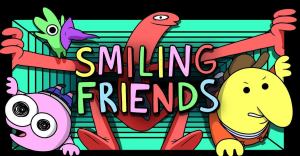Travis Barker had a long road to recover from his near-fatal plane crash in 2008. In a new interview with Men’s Health, the Blink-182 drummer said that he suffered severe mental health setbacks in addition to physical injuries. Barker opened up more than ever before about his post-traumatic stress disorder and survivor’s guilt.
“I was dark,” Barker said bluntly. “I couldn’t walk down the street. If I saw a plane [in the sky], I was determined it was going to crash, and I just didn’t want to see it.” Barker was flying home to Los Angeles, California from South Carolina on Sept. 19, 2008, in a private plane with five friends at the time of the crash. The tires on the aircraft blew on the runway before takeoff, and it skidded across a highway, hit an embankment and burst into flames.
Videos by PopCulture.com
Barker and his friend Adam “DJ AM” Goldstein survived the crash, but the other two passengers were killed. That included Barker’s assistant Chris Baker and his security guard Charles Monroe Still Jr. — both of whom Barker said he counted as close friends. Meanwhile, Goldstein struggled to cope with the crash and died from a drug overdose one year later, which Barker said hit him hard as well.
“We were each other’s therapists,” Barker said. He said that he and Goldstein could not find support groups for survivors of plane crashes, and thus felt that others could not exactly relate to their experiences. He said: “So it was just him and me. When he left, I was like, ‘Oh, f—. I’m the only one in my club. It’s just me.’ And I find my ways to deal with it.”
Barker’s physical recovery was made worse by the torment of hastily breaking his addiction to prescription drugs, he said. He was in the hospital for three months, during which time he needed 26 surgeries including multiple skin grafts to recover from third-degree burns covering 65 percent of his body. In that time he was also forced into drug withdrawal.
“People are always, like, ‘Did you go to rehab?’” He said. “And I [say], ‘No, I was in a plane crash.’ That was my rehab. Lose three of your friends and almost die? That was my wake-up call. If I wasn’t in a crash, I would have probably never quit.” Barker added that he flushed all the medication he left the hospital with down the toilet, “including stuff that I really needed,” and never looked back.
As for PTSD, Barker has cultivated a healthy perspective on it as best he can. He explained: “There’s a million things that could happen to me. I could die riding my skateboard. I could get in a car accident. I could get shot. Anything could happen. I could have a brain aneurysm and die. So why should I still be afraid of airplanes?”
“It’s gotten better the further I get away from it,” he continued. “The closer I was to it, it felt like I was closer to the bad stuff than I am to the good stuff. I felt closer to the experience of trying to escape, [to] being in an accident and being burned, trying to grab my friends from a burning plane. That haunted me for a long time. And as long as I was closer to that than this good stuff, I was always thinking about that. Now it’s been so many years, it’s getting easier for me. There are days where I’ll wake up and never think about it.”








